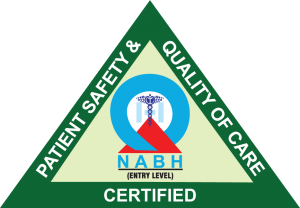BLOG – GERD
- Home
- Blog
- GERD
- Jan,1 2022
GERD
(Gastro-Esophageal Reflux Disease)
What is GERD?
Acid reflux is something we all would have experienced in life. Have you ever felt a burning sensation in the chest after eating something spicy, making you feel uncomfortable? Have you ever heard people say that they are experiencing a heartburn? When this occurs frequently and is accompanied by difficulty in swallowing, chest pain, cough, regurgitation of food or any of these symptoms, it is known as Gastroesophageal Reflux Disease (GERD). It can be mild-moderate-severe occurring as less as once a week to twice or more times a week. It is manageable for some people with dietary changes and over-the-counter medication but in severe cases, stronger medicines might be needed.

What causes GERD?
GERD is caused by acid reflux. Acid reflux happens when what you eat moves back up into your esophagus. Esophagus is the muscular tube that connects your mouth to the stomach. An occasional acid reflux may be tolerated but when it occurs frequently it can be cumbersome.
Who can get affected?
Anyone can develop GERD but it is more likely to occur in people who are obese, pregnant, people who smoke etc. It could also occur in people who take certain type of medications.
Common & less common symptoms
- Acid reflux causing a sour / bitter taste in the mouth
- Regurgitation of food
- Heartburn
- Chest pain
- Nausea
- Difficulty while swallowing
- Cough
- Bad breath etc
Preventing GERD
Obesity is an important cause of GERD. Extra stomach fat puts pressure on the abdomen and pushes gastric juices back up into the esophagus. So it is good to come to an optimum weight to prevent GERD. Optimum weight can be achieved through proper diet and exercise.
Avoid foods that are too spicy, fatty, or acidic. Also avoid excessive caffeine, carbonated beverages, chocolate, mint etc. Include more foods in their natural form. Include green leafy vegetables & fresh fruits. Avoid processed foods at all cost as they contain excess salt or sugar which can only worsen the condition.
Eating smaller meals helps in lessening the pressure on your abdomen. Also eating slowly helps in better digestion. Avoid snacking in between meals.
Eat your dinner 2/3 hrs before you hit the bed. When it comes to GERD, gravity is your friend. Try to sit upright for at least an hour after eating. You can also go for a moderate walk.
Smoking and alcohol can cause a lot of issues. They also worsen GERD. So try to cut down on alcohol and quit smoking. Tendency to eat junk food while having a drink is also a common problem. So curb your temptation.
Some medications such as aspirin can trigger acid reflux. Avoid such medicines as much as possible. Check with your doctor for alternatives.
Stress also seems to play a role here. Reduce stress to prevent GERD.
Severe GERD can result in further complications such as esophageal stricture, esophageal ulcer, Barrett’s esophagus etc.
GERD when mild can be managed mostly with lifestyle changes. But proper diagnosis of the disease is a must to know the severity to prevent further complications

